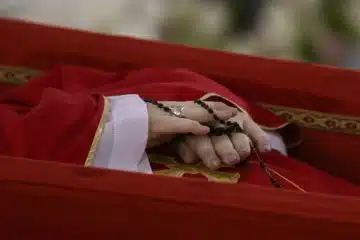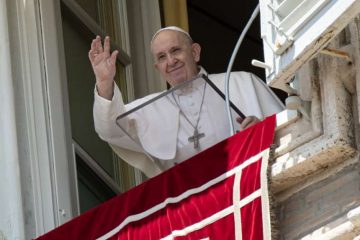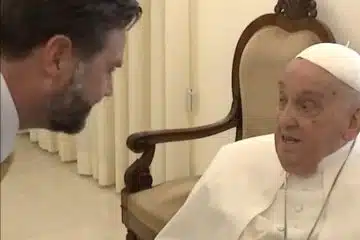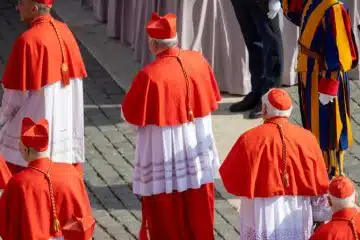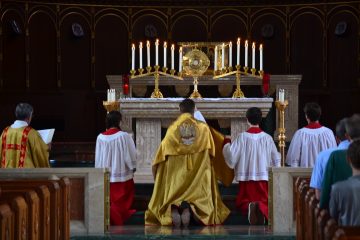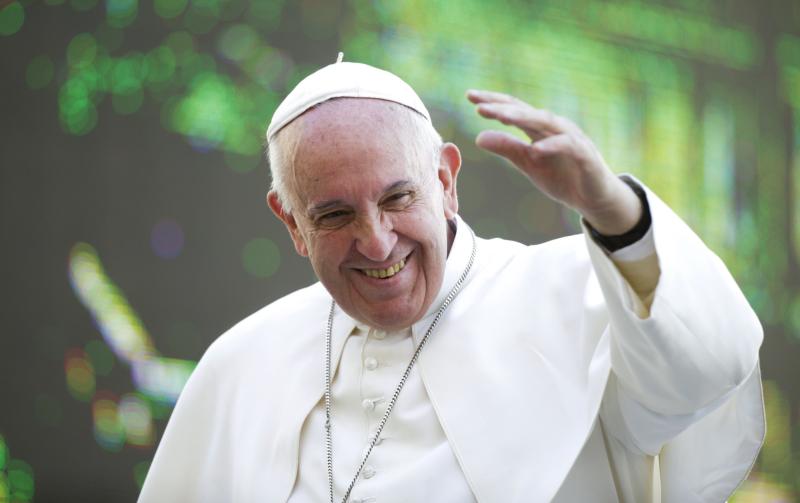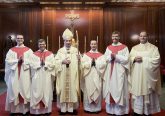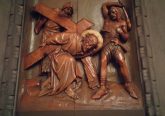Is Sacrifice Required for Worship?
I have heard that sacrifice is required for worship. Consequently, the Mass is worship, while other forms of prayer are not. Is this correct?
The word “sacrifice” is derived from the Latin for “making sacred.” According to the Church’s understanding, acts of worship have a sacrificial component, though the form that sacrifice takes varies according to the kind of worship.
ANCIENT ROOTS
The connection between sacrifice and worship has ancient roots. When the people of Israel worshiped God, they offered a sacrifice, usually an animal that was ritually offered. In doing so, they took something common (an animal) and dedicated it to God (what they called korban, meaning “to bring forward or offer”). The destruction of the Temple in Jerusalem in the latter part of the first century ended animal sacrifice in Judaism, prompting sacrifice to take on other forms.
JESUS’ SACRIFICE
Within Christian belief, the ultimate sacrifice is the death of Jesus; therefore, the Temple sacrifices, which prefigured Jesus, are continued in His sacrifice. As the Letter to the Hebrews explains, in reference to Jesus: “Every high priest is taken from among men and made their representative before God to offer gifts and sacrifices for sins” (5:1). Jesus’ sacrifice on the cross is therefore meant to be remembered and commemorated as the sacrifice that offers salvation to the world.
THE MASS
Recognizing the Mass as a participation in the sacrifice on the cross, the Church Fathers, who taught in the first centuries of Christianity, clearly connected the Mass to sacrifice. This idea endured, remaining largely uncontested until the Protestant Reformers questioned whether the Mass was necessary. Was His sacrifice on the Cross not enough? The Church responded that His sacrifice, made once and for all, is represented in an unbloody manner in the Mass, by which the Church follows the Lord’s command to “do this in memory of me” (Lk. 22:19).
As the Church developed its liturgy, the concept of anamnesis— by which Jesus is not just remembered but made present and real—was vital. This is how we engage in the sacrificial nature of worship, not simply continuing our forbears’ practices but participating in a representation of God’s saving deeds so that they may be living and effective today.
THE LITURGY OF THE HOURS
Sacrificial worship may take other forms. When members of the Church pray the psalms as part of the Liturgy of the Hours, it is a continual “sacrifice of praise” (Heb. 13:15) by which the Christian offers the day back to God. It is sacrificial in terms of the time devoted to prayer and the discipline of ordering the day so as to pray at fixed times: in the morning, during the day, in the evening, and at the day’s conclusion. This prayer of the Church sanctifies the day and is linked to the sacrifice of the Mass, for which it prepares the believer and from which it flows.
ONE SACRIFICE
When the Church prays, whether the Mass or Liturgy of the Hours, it makes an offering in imitation of Christ. As St. Paul reminds us, “Offer yourselves as a living sacrifice, holy and pleasing to God—this is your true and proper worship” (Rom. 12:1). All worship, therefore, has a sacrificial element, whether overt or not. Though sacrifice can be expressed in different ways, worship is participation in the sacrifice of Christ.
 Father David Endres is professor of Church history and historical theology at Mount St. Mary’s Seminary & School of Theology
Father David Endres is professor of Church history and historical theology at Mount St. Mary’s Seminary & School of Theology
This article appeared in the January 2023 edition of The Catholic Telegraph Magazine. For your complimentary subscription, click here


